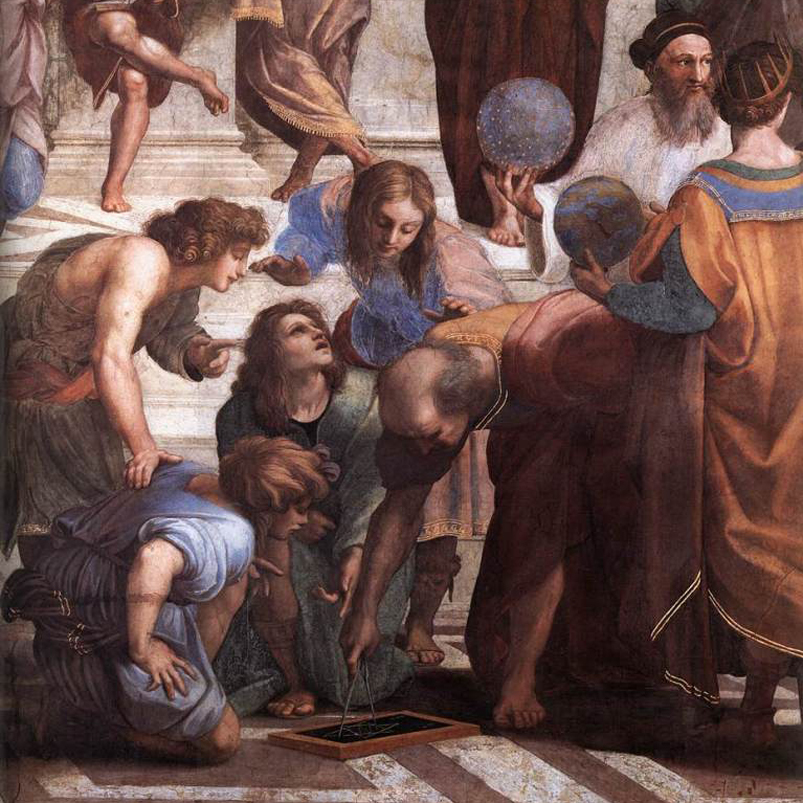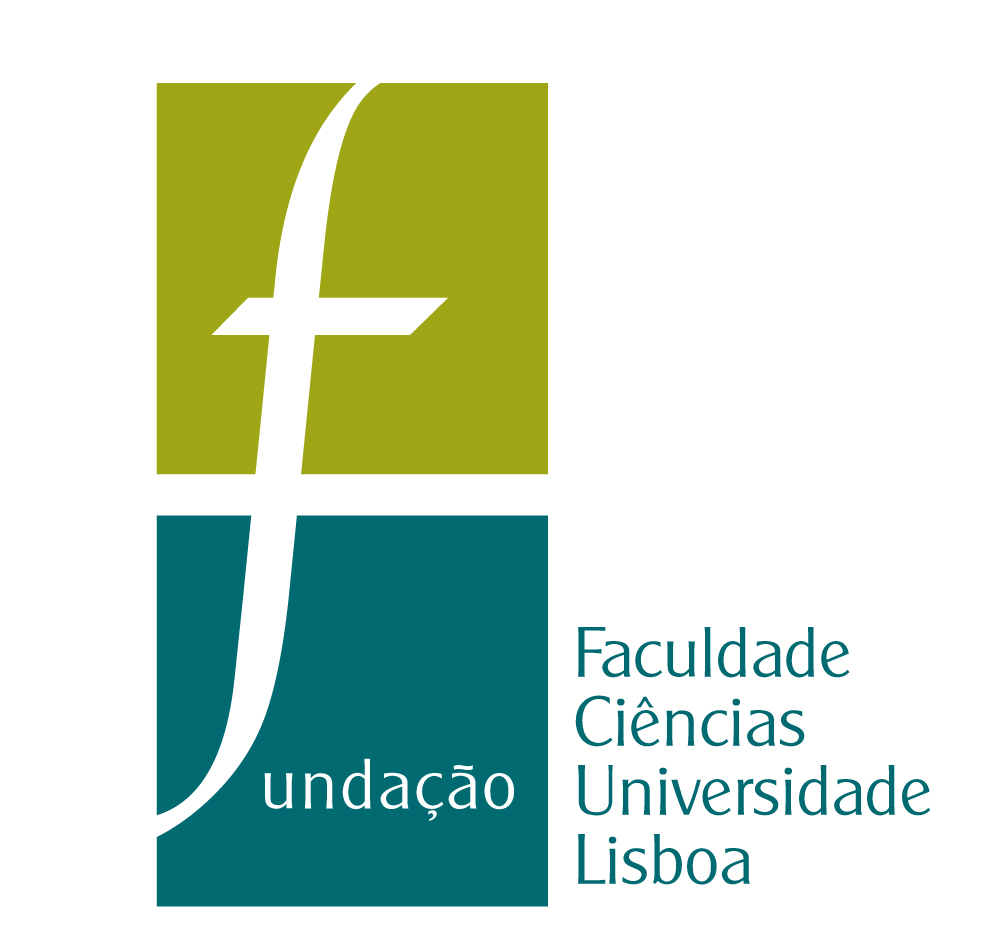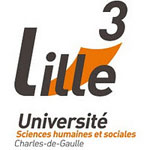Home > Grupos de Investigação > Epistemologia e Metodologia > Projectos em Curso > Argumentation and Scientific Change
Argumentation and Scientific Change: a Case Study of How
Ibn al -Haytham's al-Shukuk Changed the Course of Astronomy Forever

Grupo de Investigação | Research Group:
Epistemologia e Metodologia | Epistemology and Methodology
Investigador principal | Principal investigator:
Referência do projecto | Project reference:
PTDC/MHC-FIL/4904/2012
Avaliação | Rating:
Excecional | Exceptional
Financiamento atribuído | Funding:
€ 84.201,00
Estado | Status:
Em curso | In progress
Objectivos | Objectives
This project is an investigation into the role of argumentation in scientific change. A case in point astronomy. Research conducted for more than three decades in the 2nd half of the 20th century by several eminent historians of Arabic and medieval astronomy have radically changed our understanding of its development following the discovery of some important astronomical writings. The work of a group of Arabic astronomers known as the Maragha School (who were working in the Maragha observatory in north-western Iran) provides the evidence for the existence of an intense theoretical research during the 13th and 14th. That research, whose aim was to find alternative models to Ptolemy's system, led to the construction by Ibn al-Shatir in the 14th of the first nonptolemaic model that contain no eccentrics whatsoever. The sensation of these findings is that they provide valuable information, unknown to modern historians, able to bridge the gap between Ptolemy's Almagest and Copernicus's De Revolutionibus. It was found out not only that Ibn al-Shatir and Copernicus systems are identical but that Copernicus used the same technical apparatus developed by the Arabic astronomers three centuries earlier. Besides the intriguing questions raised by the strong similarities between the work of the Maragha astronomers and that of Copernicus, the discovery of a whole new tradition introduced a shift in historical research for it became possible to provide more complete and accurate account of the development of astronomy by focusing on the context of the emergence of the Maragha School. The historical research revealed that the work of the Maragha astronomers has its origin in al-Shukuk or Doubts about Ptolemy, an 11th century book written by Ibn al-Haytham, known in the west as Alhazen for his Optics; the revelation came to confirm what we know from other sources concerning the wider impact of Ibn al- Haytham's al-Shukuk both in the western and eastern Arabic regions making in effect its release as the major turning point in the history of astronomy. Unfortunately no serious investigation on al-Shukuk was undertaken since the release of the Arabic edition (1971) leaving an important gap in our understanding of the development of astronomy and of the history of science in general.
Our project is designed to complete the works undertaken in the last century by conducting a comprehensive investigation on the development of astronomy in the 11th century centered on the Ibn al-Haytham's foundational work al-Shukuk. Contrary to his Optics, al-Shukuk is not a book of science but a book about science. What makes al-Shukuk such a landmark in the History of Science is that it shows how change could be brought from within the subject matter, from within a specific tradition the Ptolemaic tradition. This line of research, which will be developed in collaboration with world leading logicians, historians and philosophers, will focus on in three important fields: 1) logical analysis of his argumentation techniques; 2) epistemological investigation of his conception of a scientific theory underlying his refutation; 3) historical investigation concerning the decisive role of Ibn al-Haytham's al-Shukuk in bringing change from within to a major scientific discipline that was stagnating for centuries. This case study seems to point to a more precise explanation of the development of science that this project aims to explore.
Membros || Members
Ahmed Alami
Hassan Elbahi
Ahmed Hasnaoui
Domonique Raynaud
George Saliba
Hamdi Mlika
Régis Morelon
Shahid Rahman
Roshdi Rashed
Tony Street
Parcerias || Partnerships
Inglaterra
Actividades || Activities
- Types de raisonnement dans la pensée arabo-musulmane Conference by Elbahi Hassane, Logic Professor University Ibn Tofail - Kenitra, Morroco, FCUL, 19th November 2014, Auditorium of the Faculty of Sciences' Foundation.
- International Colloquium The Philosophers and Mathematics organised by Hassan Tahiri under the FCT research project Argumentation and Scientific Change: a Case Study of How Ibn al -Haytham's al-Shukuk Changed the Course of Astronomy Forever, 29th - 30th October, FCUL, Room 6.2.56 [Website] [Poster] [Programme] [Abstracts]
- Ibn al-Haytham, Fondateur du Pluralisme Scientifique Conference by Hassan Tahiri integrated on the 9th Colloquium of the Internacional Society for the History of Science and Arabian and Islamic Philosophy Rationalité Plurielle Sciences, Philosophie et Kalam dans l'Islam Classique. 8th October, Institute du Monde Arabe, Salle du Haute Conseil, 9th - 10th October University Paris Diderot - 7, Paris, France [Programme] [Poster]
- New research on Abū Bakr al-Rāzī's atomism Conference by Pauline Koetschet, CNRS - France, FCUL, 18th de September 2014, 15h - 16h30, Room 8.2.23. [Poster]
- Abū Bakr al-Rāzī's intromission theory of vision: between the Greek antecedents and Ibn al-Haytham Conference by Pauline Koetschet, CNRS - France, FCUL, 17th September, 11h - 12h30, Room 8.2.23. [Poster]
- Workshop L'Épître sur la forme de l'éclipse d'Ibn al-Haytham, Prof. Dominique Raynaud, Grenoble-France University, 5th June 2014, FCUL, 10h30 - 18h00. [Poster]
Abstract: The Epistle on the Shape of the Eclipse / Maqāla fī sūrat al-kusūf was composed by the mathematician and astronomer Ibn al-Haytham (d. after 1040). This is the first scientific text on the camera obscura, a device which will be further investigated in the Middle Ages (Bacon, Pecham, Baisiu…) and Renaissance (Maurolico, Della Porta, Danti, Kepler, Scheiner…). Ibn al-Haytham's work makes use of geometrical optics to determine the shape of a partial eclipse of the sun projected on a plane surface through a pinhole. My lecture will discuss the progress made by Ibn al-Haytham over his predecessors. One of them is due to the minimum size of the pinhole that allowed him to obtain a stigmatic image.
- April 13-15, 2014: a talk delivered by the principal investigator at the Fifth Annual International Translation Conference Program organized by Translation & Interpreting Institute - Global Translation Flows - April 13 to 15, 2014; Qatar National Convention Center, Doha, Qatar.Abstract: Translation as scientific evidence The aim of this talk is to share my present experience to showcase the profound epistemic implications of translation. I am actually working on a project which involves the translation into English an astronomical work written by the 11th century great Arabic scientist al-Hassan ibn al-Haytham. But why to translate a highly technical and difficult ancient scientific work from the former to the current lingua franca? And what do I hope to achieve by doing so? Ibn al-Haytham has written a whole book he called al-Shukūk 'ala Batlamyus or Doubts about Ptolemy to explain to his colleagues his decision why he was abandoning Ptolemy's system and to argue for the search for a more consistent alternative astronomical system. Recent researches on Arabic astronomy have revealed that al-Shukūk had such impact that since its disclosure Ptolemy's Almagest stopped to be seen as the suitable model of the heavenly bodies. Numerous attempts have been made to find new alternative models based on the correct principles of physics following his unprecedented strong appeal. Ibn al-Shātir's astronomical system represents the climax of the intense theoretical research undertaken during the thirteenth and fourteenth centuries by the Marāgha School. Copernicus provided in the 16th century a second nonptolemaic system equivalent to Ibn al-Shātir's model using the same mathematical concepts developed by the Marāgha School two centuries earlier. Al-Shukūk was widely known in the East but not in the West; a major historical gap that misled western historians' interpretation of the development of science and in particular their explanation of the emergence of the so-called modern science. The paper will argue that translation can be seen as a piece of scientific evidence for conducting a major update of the history of science due to the revolutionary scientific change that was triggered by Ibn al-Haytham's landmark al-Shukūk.
- Development of the First Non-Ptolemaic Astronomy at the Maragha School and its Historical Implications on the Periodisation of Science, Workshop by George Saliba, Emeritus Professor of Arabic and Islamic Science at Columbia University, USA, February 10th-11th, 2014.
- The public lecture: History of Arabic Science and the Study of Renaissance Science, Monday Feb 10th, 15h-16h30, FCUL, Room 8.2.02. Abstract: The aim of this talk is to show both the relevance and importance of Arabic-Islamic science for the study of Renaissance science. The point is to demonstrate that we cannot understand the works of someone like Copernicus without understanding the Arabic background where all the necessary mathematics was developed. The larger methodological point is to stress that the study of the history of Arabic science should not be done only to understand the development of science across at least two cultural borders, but to do so simply as a prerequisite for studying Renaissance science, and through that the rise of modern science. In this context I will naturally raise the question of the social, economic, and political conditions that facilitated the development of science in both cultures, and speculate about the reasons that led one culture to continue producing one revolution after another to the exclusion of all other cultures .
- The Seminar: Arabic Astronomy Between Greek and Renaissance Astronomy, Monday Feb 11th, 10h30-12h, FCUL, Room 8.2.02. Abstract: The purpose of the seminar is to demonstrate how the Greek astronomy that was developed by Ptolemy, in the second century AD, was found deficient when it was received some seven centuries later in the early days of the Abbasid Empire during the early part of the ninth century. My presentation will demonstrate how the astronomers of the ninth century benefited from the passage of time to re-examine the basic astronomical parameters of Greek astronomy, and from then moved on to a serious reconsideration of the philosophical, and cosmological foundations of that astronomy. That path led them slowly to reach the conclusion that an alternative astronomy had to be created. This conclusion came at the heels of the development of a tradition of doubt (shukuk) which was also slowly refined for a period close to two centuries before the serious conceptual questions about the need for a new astronomy could mature towards the first half of the thirteenth century. The seminar will conclude by demonstrating how this series of doubts, questioning, various attempts to find alternatives led early Renaissance scientists to look into the Islamic tradition for innovations rather than resume working with the Greek tradition that had become obsolete by the Renaissance time. The seminar will hopefully demonstrate that Arabic-Islamic science rather than being the preserver of Greek science, as it is so frequently portrayed, was rather a development of a series of challenges to that Greek science that made it finally polished enough and useful enough to be used by Renaissance scientists.
Both talks will be fully illustrated. And I will use original pages from Arabic and Latin manuscripts to develop my arguments. George Saliba is one of few historians of astronomy who, in the second-half of the 20th century, revealed to the scientific community the works of the Maragha School astronomy who developed the first nonptolemaic system in the 14th century. He has for more than thirty years written some of the most original and advanced studies of the sciences in arabic; among his numerous publications: A History of Arabic Astronomy, Planetary Theories During the Golden Age of Islam, New York University Press, 1994; and Islamic Science and the Making of the European Renaissance, MIT, Cambridge MA, 2007.
- July 21-28, 2013: a talk delivered by the principal investigator in a Symposium S012 on Arabic foundations of science at the 24th International Congress of History of Science, Technology and Medicine, University of Manchester - UK, 21-28 July 2013.
Abstract: The role of Ibn Sina's intentionality in the construction of numbers In his monumental work al-Shifa (or the Healing), Ibn Sina (980-1037) has conducted a deep investigation into the concept of number whose status was left in disarray since the discovery of the irrationals. Unlike the Greek tradition which unanimously rejected the irrationals, arab mathematicians, since the pioneering work of al-Khwarizmi's Book of algebra, accepted the irrationals as numbers throwing into confusion the narrow classical understanding of the concept of number. Much ahead of theoretical research, the rapid development of mathematical practice since the ninth century has shown that the definition of number should be updated and its understanding clarified. It is in this context that Ibn Sina has carried out his major investigation into the foundations of mathematics. In his paper "Philosophy of mathematics", Roshdi Rashed explains how Ibn Sina's al-arithmatiqi radically shook up the ancient classification of the four mathematical disciplines with the aim of making them independent of natural philosophy: "from now on, he concludes, all the ontological and cosmological considerations which burdened the notion of number are de facto banned from al-arithmatiqi, considered thus as science." Ibn Sina's main objective to make arithmetic a pure science independent of natural philosophy is only the beginning of the story. But by what means? Here is the crux of his argument: 1) numbers are objects: this is their function in mathematical practice; 2) since they have no existence in the outside world, they exist in our mind not as real but simply as intentional objects. And the tough question in this regard is: how can a number such as 7 e.g. be an object of the mind? Or more generally what does it mean for pluralities to be the object of an intentional act? I shall investigate the answer given by the author of al-Shifa to these questions and examine to what extent it can be compared to some of the various attempts made by the 19th century mathematicians and philosophers.
Publicações || Publications
- Ibn Al-Haytham (Alhazen), by Roshdi Rashed









